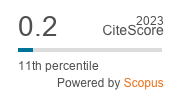Analysis of the Material Scope of Substantive Finality Based on the Hungarian Codes of Civil Procedure
DOI:
https://doi.org/10.54148/ELTELJ.2022.1.109Keywords:
finality, substantive finality, right enforced by an action, judgments dismissing the action, judgments upholding the actionAbstract
The regulation of finality is based on the fact that the main purpose of any procedural law, whether at domestic or international level, is to strive for finality; namely that courts decide on the dispute brought to them finally, thus ensuring the legally regulated order of social relations. That is, the need for finality is the common core of the procedural law of each country.
Finality necessarily incorporates the tension that every legal system (and its constituent civil procedural law) has to face: the fact that the legislator cannot aim for the facts reflected in the final judgment at the end of the proceedings to be the same as the actual historical facts.
Instead, the state may commit itself to ensuring that claimants have the right to a fair trial.
This task necessarily implies that the State must establish a procedural order, in which even the inability to establish the facts (as the case may be) may not prevent the adoption of a substantive decision. This is most manifest in the standard of the burden of proof and substantive finality.
In my study, I will search the material scope of finality with regard to judgments dismissing or upholding the action.



